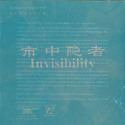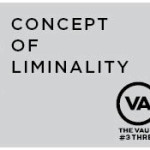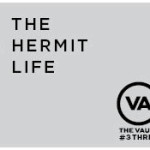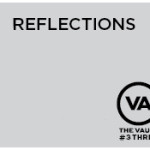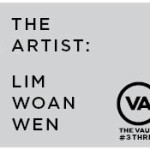Past stagings of Invisibility:
| Date | Production Details |
| 1996, Aug 15-25 | By The Necessary Stage Venue: The Substation Director: Kok Heng Leun Lighting Designer: Lee Cheng Heng Excerpt of the director’s message: “In this busy city, I often see people working hard for their daily bread and at the same time, looking quite lost… Why? How I wish I knew what we are really after.” The Invisibility (1996) programme booklet is available for viewing in Centre 42’s The Repository. |
| 1997, Dec 19-21 | By The Necessary Stage Venue: Ping-Fong Theatre (Taiwan) For the Ping-Fong Experimental Theatre Festival Director: Kok Heng Leun |
| 2000, Sep 13-17 | By Drama Box Venue: Chang Clan General Association, rooftop Director: Sim Pern Yiau Producer; Lighting/Set Designer: Kok Heng Leun |
| 2009, Apr 2-4 | By Light Republique Venue: LASALLE, Creative Cube Director: Peter Sau Lighting Designer: Jonathan Sin [View light plot of this production] |
| 2010, Feb 19-20 | Title: Invisibility/Breathing, a response to InvisibilityBy Drama Box and Cake Theatrical, A Huayi 2010 festival commission Venue: Esplanade Theatre Studio Director: Natalie Hennedige Lighting Designer: Lim Woan Wen |
| 2014, Nov 27-29 | By Intercultural Theatre Institute Venue: Drama Centre Black Box, National Library building Director: Kok Heng Leun Lighting Designer: Lim Woan Wen Sound Designer: Darren Ng |
Responses and Reviews to stagings of Invisibility:
- On the inaugural production in 1996:
“What better fantasy can a voyeur have than to be invisible while snooping around?… For a view of the action, which will take place at The Substation’s Guinness Theatre for 11 days from Thursday, the audience will have to climb up platforms built about 1.2 m above ground on three sides of the stage, much like an arena…
To let his cast of eight get a feel of the city, Kok [Heung Leun] has sent them to different corners of the island around midnight, from Orchard Road and Geylang to East Coast Park and 7-Eleven convenience stores, to observe the people there.”…
“As it is, we are such a self-centred society that people are oblivious to whatever goes on around them. They just pretend they are invisible to each other!” he says. ~ Source: “Would you like to be invisible and snoop around?“ By Wong Chee Meng (The Straits Times, 13 August, 1996)
- On the Taiwan production in 1997:
“A recent performance by a Singapore theatre group has changed the impression some Taiwanese had of the drama scene here…
The Taiwanese media and drama critics were also surprised that a small and somewhat sterilised place like Singapore could produce such a daring and thought-provoking play. Wrote a critic from Taiwanese daily Min Sheng Pao: “The play is not the dull production we expected from Singapore. The director used lighting, sets and dramatic effects to create an ever-changing visual experience. The whole process was so fluid, yet simple. This is a mature production indeed.”… ~ Source: “Hey, peep into S’pore life is an eye-opener“ by Chin Soo Fang (The Straits Times, 8 January 1998)
- On the rooftop production in 2000:
“There is always some form of distraction or diversion of our attention either from the OHP visual projections or the noise from the surroundings. The choice of the small open-air rooftop generates a sense of uncanny proximity of the audience to the drama but the audience seldom gives an acknowledgement to those sitting right across their faces…
The play’s strengths rest mostly on the sparkling dialogue in the script by Quah Sy Ren and so you can imagine my disappointment when at the night of the performance, the noises from the overhead airplanes and nearby street operas threatened to drown out the actors’ voices. The actors were also visibly struggling with the distractions. Yet strangely, these unforeseen disruptions added shades to the play. Indeed, true to the play itself, the cacophony mimics that of the city’s mind-numbing music and gives reinforcement to A’s shouts to the neighboring flats: “CAN YOU HEAR ME!” ~ Source: “Seen and heard in Geylang” by Adele Tan (The Flying Inkpot, 13 September 2000)
“The four actors played out vignettes of city life in all the available spaces around the audience on that rooftop. Their movements made it necessary for the audience to change its sitting position constantly. Audience attention was also deflected sporadically by the flashing of photographic and advertising images on an overhead projector. What resulted was the suspension of the audience in a state of constant restlessness and distraction. This feeling of connection and disconnection from all that was going on around oneself seemed particularly in tune with the play’s central concern with the loneliness of urbanites. I wonder if the theatre company was aware that on the first night of performance the actors would have to vie for audibility against two Chinese operas, one performed at the temple next door and the other from a stage further down the street. No matter. What I thought would be a cause of annoyance turned out to work quite well with the play.” ~ Source: “Ambitious play on lonely urbanites” by Yeo Wei Wei (The Straits Times, 15 September 2000)
- On Intercultural Theatre Institute’s 2014 production:
“Directed by Drama Box’s artistic director Kok Heng Leun, the 1996 Mandarin play by Quah Sy Ren will be readapted into a multilingual production using texts as varied as Fyodor Dostoyevsky’s existentialist Notes From Underground and A Madman’s Diary by 20th-century Chinese writer Lu Xun, as well as writing from the play’s diverse cast who hail from countries such as the Philippines, Bolivia, Singapore and Italy.” ~ Source: “Breathe, calm down and act” by Nabilah Said (The Sunday Times, 25 November 2014)“Despite the characters divulging their desires to the audience, the performance seems to fall flat and stagnant contrasting the personal and potentially riveting content… Brief interactions between solitary individuals characterize the play. Being a cast with diverse nationalities proved an advantage to exploring marginalized foreigners, isolated in an alien land… Despite the wealth of experiences the cast can potentially offer, the direction resorts to the same didactic style- victimizing and painting a shallow image of those marginalized. In a scene, Denise Mordeno Aguilar played a Filipino immigrant complaining about the current surge of immigrants from various countries. Afterwards, her character was not seen again. Issues, such as identity and belonging, are prematurely discarded, diluting the potency of the play.” ~ Source: “Invisibility by Koh Heng Leun, ITI” by Iffah Adawiyah (The Review Room, 2 December 2014)
“这 次演出,整体制作精致得多,剧场空间、灯光、音乐等等,具有专业水准,也是十八年来整体艺术培育的成果展现。这些艺术家都经过多年磨练,也跟导演合作多次 而培养深厚默契。我不得不说,从积极的角度来看,新加坡整体艺术氛围成熟许多,从Sasi, Ivan Heng, Alvin Tan这一代的艺术家得到文化奖的肯定,就可以看到具体成果。庆亮正是他们这一代比较年轻的,不过,他的起步也正赶上整个世代的崛起…
演出结束,在剧场外见到庆亮的儿子,第一次正式跟他握手说话。我其实很想说,他是在第一次《市中隐者》即将上演时出生的。不过我没有说,只是在心里感叹,十八年了啊,只是这么一转眼呢。” ~ Source: “十八年后” on A Stranger at Home [Quah Sy Ren’s personal blog], 2 December 2014)
[Translation: “The overall production of the show is much more sophisticated than it was eighteen years ago. The set design, lighting, music, etc., were all put together professionally. It goes to show the progress made in the last eighteen years. These artists have been training for years, and under the guidance of the director [Koh Heng Luan], have grown in depth. On a positive note, the arts scene in Singapore has matured over the years. This can be seen from the recognition that earlier generations of artists have been receiving recently. Sasi, Ivan Heng and Alvin Tan, for instance, have been awarded with the Cultural Medallion. Heng Luan is younger than these artists, but he is certainly catching up with them… At the end of the show, I met Heng Luan’s son for the first time outside the theatre. I wanted to tell him that he was born at the time of the first staging of Invisibility. But I didn’t. I just thought to myself how quickly eighteen years has flown by.”]
By Daniel Teo
Published on 14 May 2015

